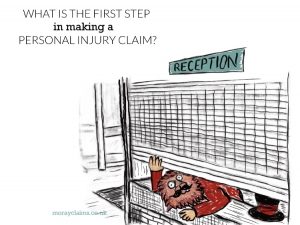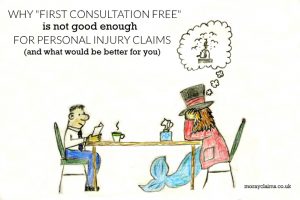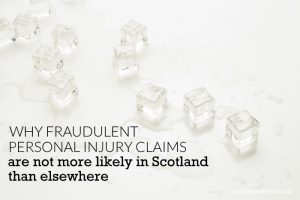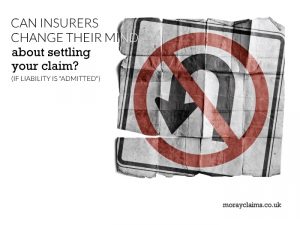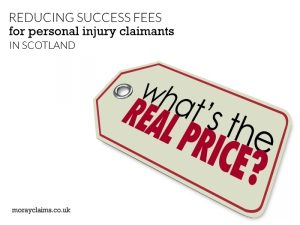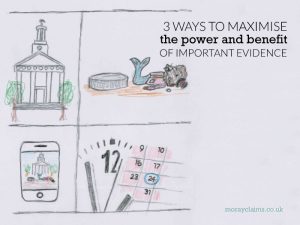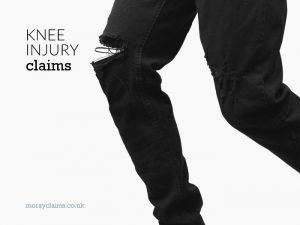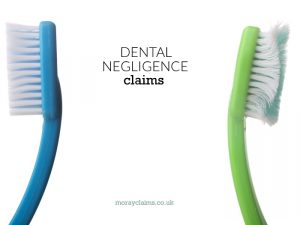If you are injured or unwell and go to your local Accident and Emergency Department, you hope it is the first step on the road to recovery. Mr Darnley went to the A&E department of the Mayday Hospital in Croydon where he was told by the receptionist, in an offhand way, that it would be up to four or five hours before he was seen. After 19 minutes in the waiting area, Mr Darnley, who had head pain, decided to go home. Unfortunately, his condition deteriorated and he was taken back to the same hospital for a scan which revealed that he had bleeding on his brain. He was transferred to another hospital for neurosurgery but it was too late to prevent permanent injury - paralysis down one side of his body. In fact, the original receptionist had given Mr Darnley misleading information. Had he waited in A&E, he would probably have been seen within 30 minutes of his arrival - i.e. shortly after he left. Had he waited, his condition would probably have been diagnosed early enough Continue Reading
When you need to get copies of your Medical Records (Pitfalls to avoid)
“Can he really play?” “Heavens, no! He never played a note in his life” That’s the caption accompanying what is reckoned to be one of the most copied advertisements in history. The headline? "They Laughed When I Sat Down At The Piano - But When I Started to Play!" This 1927 newspaper masterpiece by John Caples has become a prime example of how to sell to people by tapping into their emotional desires through storytelling. The long-form advertisement was to promote a (free) book entitled “Music Lessons in Your Own Home”. Even the legendary comedian, Bob Monkhouse, copied the format for one of his best gags: “When I first said I wanted to be a comedian, everybody laughed. They're not laughing now.” Copying others’ style can apply whether you are writing an advertisement or a joke. Copying can also apply to medical records – and that’s what we’re looking at in this article. We’ll consider three questions relating to medical records in personal injury Continue Reading
Why First Consultation Free is not good enough for personal injury claims (and what is better for you)
Is one font better for your memory than another? Can the design of the typeface used to put information into a readable form make a difference to how well you will recall that information later? Research on this issue at RMIT University in Melbourne concluded that most of the fonts we see every day are similar. Their familiarity means we often glance over the words they form and no memory trace is created. On the other hand, at the other end of the spectrum, if typography is too different from the norm, the brain does not process it well and, again, we don’t retain the information. Is there a way to overcome this balancing act between over-familiarity and unreadableness? RMIT has developed the font, Sans Forgetica, which could be the answer. They say it lies at a sweet spot where, although the appearance of the font forms something of a barrier to the learning process, overall it helps the learning process rather than hindering it. They have proved this via a mixed lab Continue Reading
Why fraudulent personal injury claims are not more likely to appear in Scotland than elsewhere
“Idiot insurance scammer fails miserably with fake ‘ice on floor’ fall”. That was one description of 57-year-old New Jersey man Alexander Goldinsky’s apparent attempt to stage a “slipping on ice cubes” accident in his work canteen. The incident – which happened sometime in the second half of 2018 - was captured on CCTV. Allegedly, he then filed a false insurance claim for the ambulance service and treatment he received at a local hospital for his "injuries" and the outcome was that he faced a criminal prosecution for fabricating the claim. Clearly, the USA is not Scotland but did you know that... ...within the UK, Scottish personal injury claimants are most likely to put forward exaggerated or fraudulent claims? This view has been expressed in the legal press by solicitors whose job it is represent the interests of insurers in defending personal injury compensation claims. Reforms to the law in England and Wales have meant that, in some claims where the injured person has Continue Reading
The most-read 2018 articles on the Moray Claims blog
In 2018, we published 44 new articles on this blog. 14 of these were published between 28 March and 27 April. This month-long burst of activity was helped by the kind folks at 5000bc who kept me accountable via a Taking Action Post in that forum. I didn’t quite achieve my aim to write 20 articles in 30 days (not all of them for this website) but I came close. In this article, we’ll look at the 10 Moray Claims posts from 2018 which have attracted the most traffic, according to Google Analytics. The ones which didn’t make it included one about how not to market personal injury claims services and one about how the Scottish Government plans to legislate to reduce the average cost of personal injury claim services for no win-no fee claimants. In reverse order… 10. When you should get help from an Advocate with your personal injury claim When you should get help from an Advocate was the first blog of 2018, explaining the role that Scottish barristers (known here as Continue Reading
Can insurers change their mind about settling your claim (if liability is admitted)?
Some say The Blue Nile are the greatest ever Scottish band. Though they only ever released 4 albums - between 1984 and 2004 - they maintained a consistently high standard throughout. Their music has a spare, cinematic quality which blends perfectly with Paul Buchanan’s soulful and world-weary voice. The Blue Nile’s 1989 release, Hats, has topped some polls to find the best Scottish album of all time. I listened to that album a lot when it came out - I was a student then - and I still listen to it often even now. The fact is, they almost never got a recording contract at all and took an unusual route to achieve that end. Around 1983, a top-of-the-range Glasgow-based hi-fi company called Linn Products found that their equipment’s sales prospects were boosted if they used music from the band’s demo tape when demonstrating Linn’s music systems to potential customers. When Linn discovered The Blue Nile were unsigned, they decided they would sort them with a record deal by Continue Reading
Slipping accident on retail premises: a case study
Ms S visited a fast food restaurant in Elgin at the end of a night out. She needed to use the customer toilets. She went through the door from the restaurant into the ceramic-tiled corridor which led to the toilets. Though she did not notice the fact until after she had fallen, the floor was wet. This caused her to slip. As a result of her fall, she suffered an injury to her back. A "wet floor" sign was put out in the corridor, immediately following her accident. She reported her accident to a member of staff at the time but it was not until the next day that she realised the severity of the injury. She had the presence of mind to write a letter to the manager of the fast food restaurant informing him of the fact and details of her accident. Grigor & Young made a compensation claim on Ms S’s behalf, in this case. At all times, liability was denied. The fast food restaurant did not accept that, in fact, the floor had been wet at the time. They did not accept Continue Reading
Why employers face greater risk from injury claims due to employee negligence
Who you claim compensation from via a personal injury claim is not always as obvious as it may appear. In a road traffic accident, it’s the negligent driver who injured you that’s first in line. But it’s usually their motor insurer who pays the compensation. And it’s that insurer you will sue if you have to raise a court action to ensure your claim succeeds and you secure a reasonable level of compensation. If the driver was at work at the time of the accident, you might also have a claim against the driver’s employers under the law of vicarious liability. What do we mean by vicarious liability? “Vicarious” experience is where you live your life through the experience of another person, as a housebound parent might experience the wider world through their student child reporting back on travels during a gap year. Or a precocious child, such as Calvin from Calvin and Hobbes, might claim that his Dad is trying to live Calvin's life vicariously because Calvin's Dad's life is Continue Reading
Reducing Success Fees paid by Scottish personal injury claimants
Success fees are the “hidden cost” of personal injury claims. They reduce the amount of compensation you receive from a personal injury claim after that compensation figure has been fixed and paid. Success fees are fees that are paid out of compensation (awarded or agreed) by successful personal injury claimants to their solicitors or claims management companies under a success fee agreement. In this article, we will look at how the Scottish Government wishes to regulate the maximum levels of success fee that can be charged – to provide a better financial outcome for injured people than they often get at present. First of all, in order to understand the context in which this is all happening, we need to look at wider changes that will soon affect Scottish personal injury claims. The Scottish Government intends to change the way personal injury claims are run in Scotland. This follows similar changes brought in in England and Wales. One big proposed change is to reduce Continue Reading
3 ways to maximise the power and benefit of important evidence
Memory scientist, Julia Shaw, gave a talk at TEDx London in July 2018 about reporting harassment and discrimination in the workplace. Dr Shaw is an honorary research associate at University College London in the Psychology and Language Sciences department. Women, people of colour and people who identify themselves openly as part of the LGBT community are most at risk of harassment and discrimination in the workplace. Some studies have shown that as much as 98% of affected persons will never report this type of mistreatment to their employers. One barrier to speaking up is the fear that it will be held against us and affect our future prospects in the job. Another is the fact that, often, your memory is the only evidence you have of what happened. Will that be enough to be believed? Dr Shaw has researched – in courtrooms as well as laboratories - how humans process memory of important and emotionally-charged events. The interview process is important. By “interview”, Continue Reading
Knee injury compensation claims
Dr Carl Wunderlich, who died in 1877, is famous for his measurement of average healthy body temperature of 37°C. (98.6°F). Using a thermometer reputedly a foot in length - and needing 20 minutes to register the temperature – he tested around 25,000 patients and took over 1 million readings. He was at the forefront of medical science for his time but his “normal body temperature” of 37°C has gradually been seen as an oversimplification of reality. In fact, normal temperature is actually a range because no two human bodies are the same. In addition, we all react differently to external factors and disease. Body temperature can also vary according to: how much we’ve eaten; our stress levels; hormones; and different levels of exercise. Something – normal body temperature - that, at a glance, seems simple turns out to be much more complicated. And this is also the case with the human knee. On the face of it, the knee simply joins the top of the leg with the bottom of the leg. Continue Reading
Dental negligence claims
Rock climber, Alex Honnold, completed the first free-solo ascent of El Capitan, in Yosemite National Park, California in June 2017. In other words, he climbed it by himself – all 2,900 feet of the route known as “Freerider” - without any ropes, taking just under four hours. In a TED Talk about his incredible accomplishment, he explains the sense of anti-climax he had after a previous free-solo first – the ascent of Half Dome (also Yosemite) – in 2012. That peak can also be reached by walkers, via a path up another side of the mountain from the rock face. As he struggled at the crux of the climb, just below the summit, he could hear people chatting and laughing above him, unaware of his presence. He had climbed Half Dome before, with ropes and full climbing gear. On those occasions, because his clothing and equipment marked him out, the regular hikers had greeted him at the mountaintop with gasps of adulation and crowded round him for photos. Not so, on this Continue Reading
